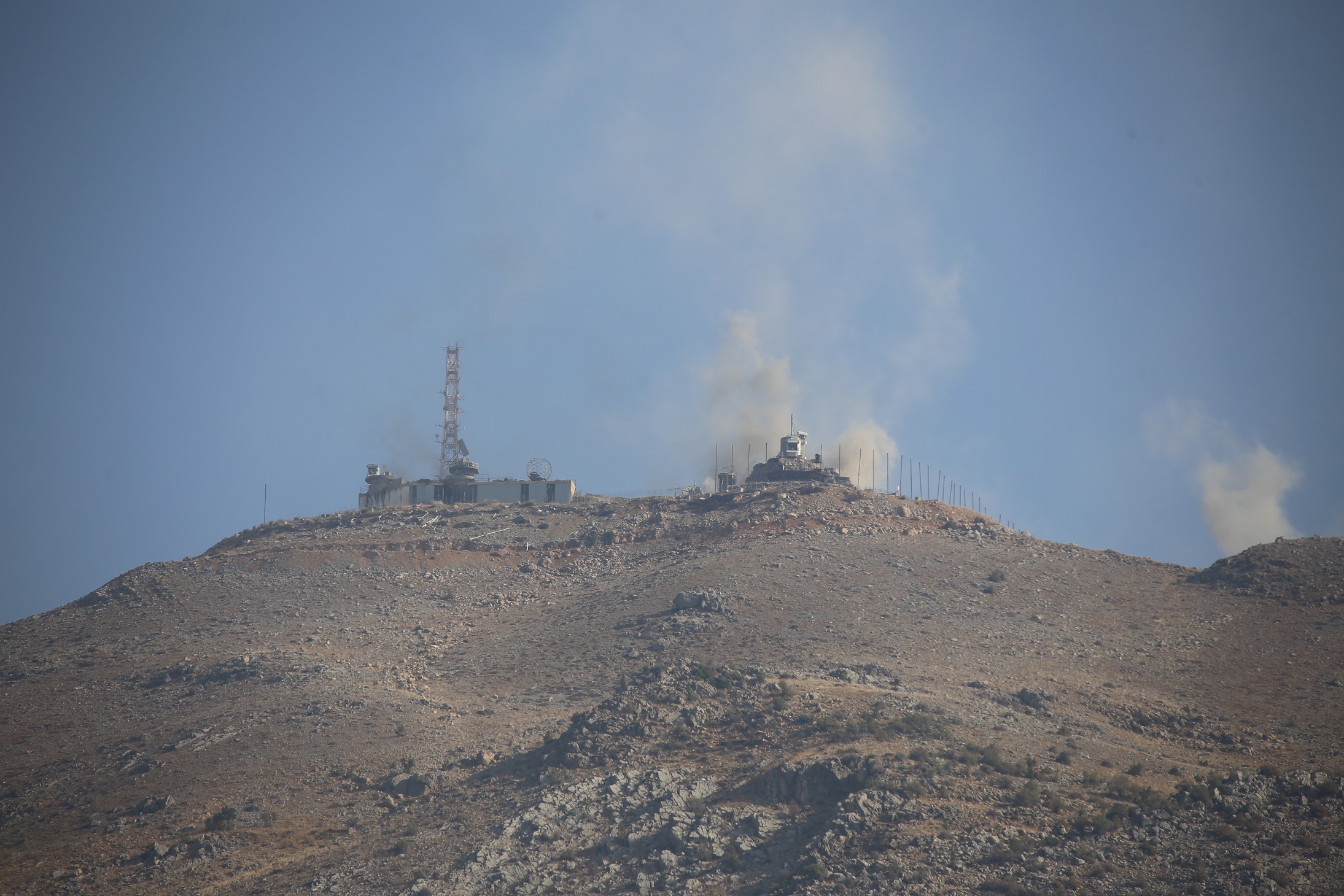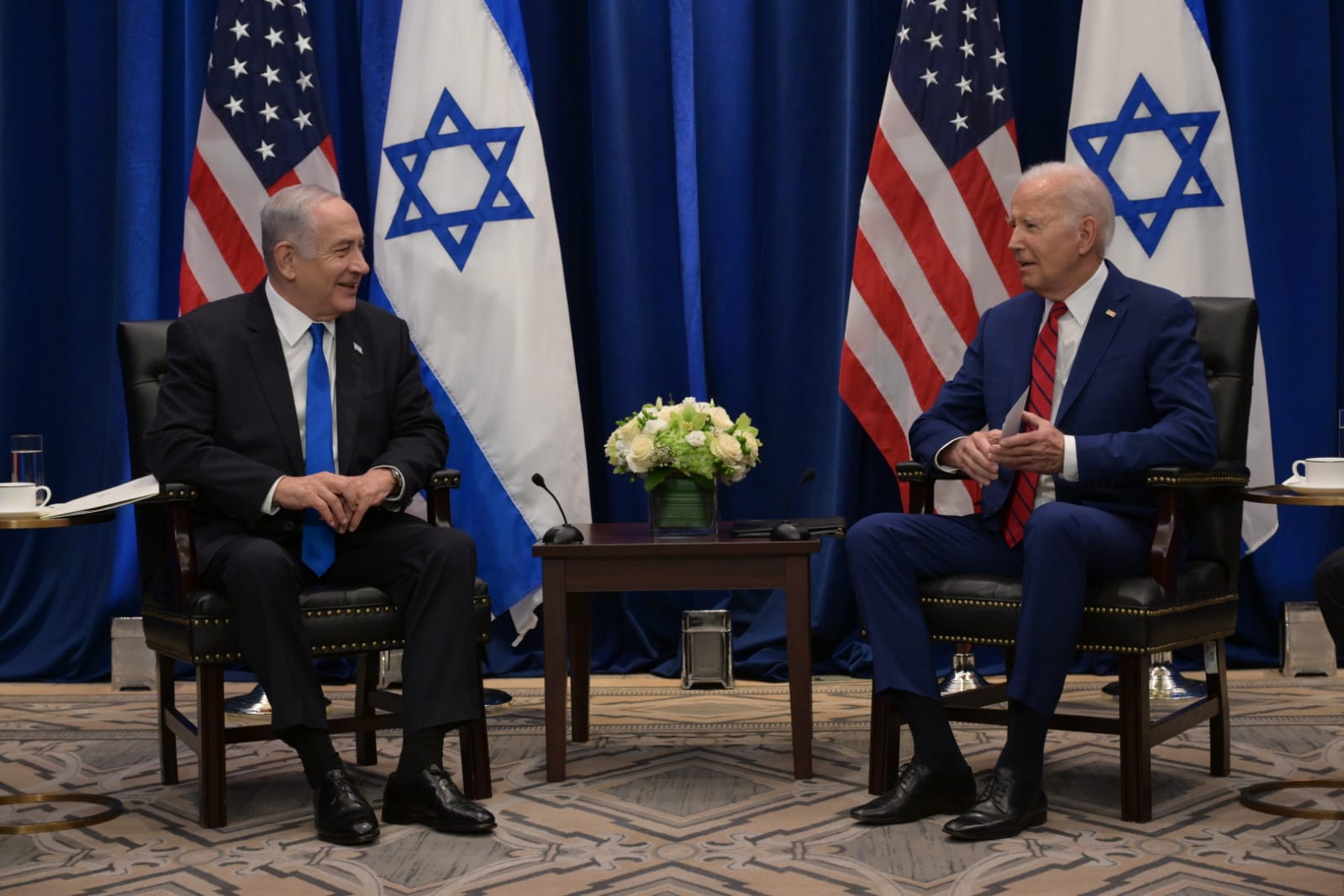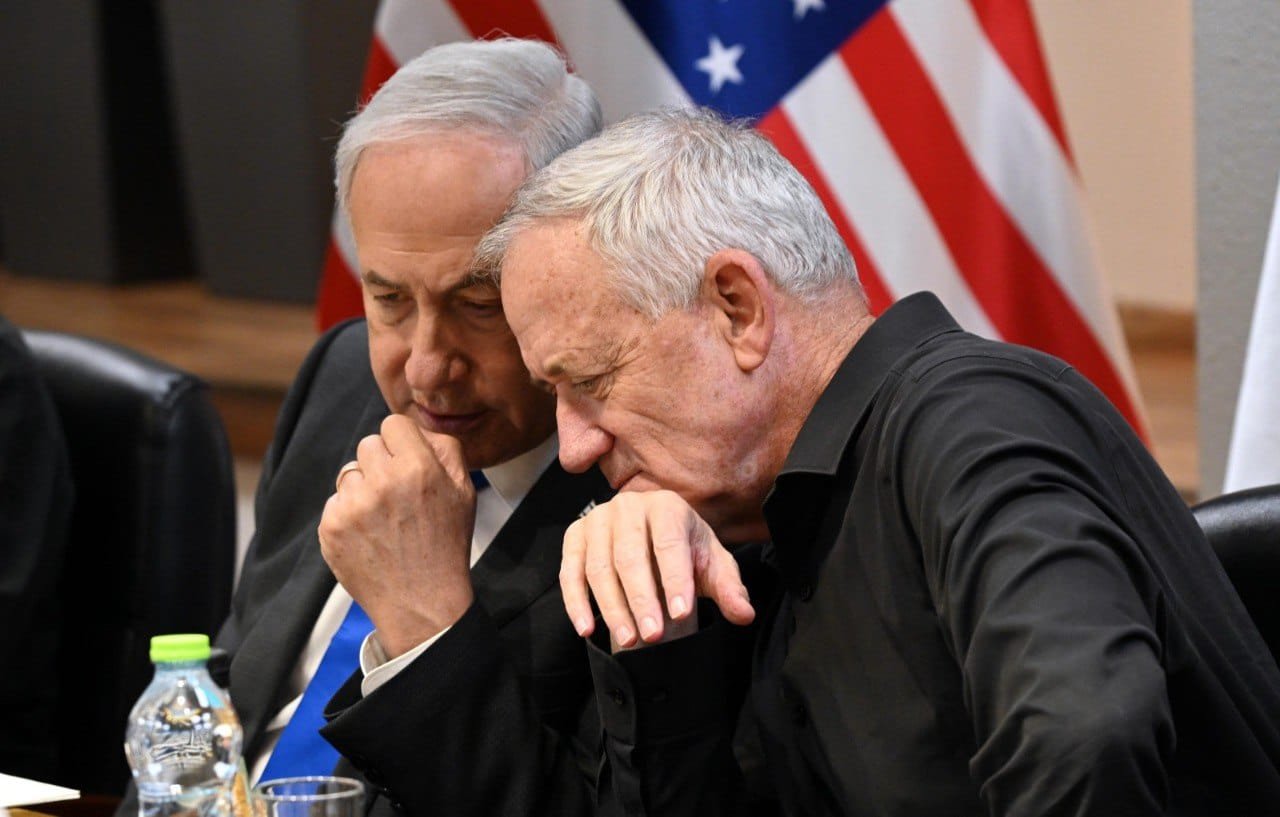Publications
INSS Insight No. 1788, November 20, 2023
Although the military goals of the Swords of Iron war, as defined by the Israeli government, are clear, Israel has not presented a political idea that should be served by the fighting. As a result, there is increasing international pressure on Israel to present the political goals of the military operation. Israel should present a political plan based on the establishment of a technocratic administration in Gaza, with the support and involvement of pragmatic Arab states and the international community, and in coordination with the Palestinian Authority. Broad support would allow for the reconstruction of Gaza after the war, and at the same time, help renew the process of regional normalization with Israel and the establishment of a new regional architecture – which would weaken the radical axis led by Iran.
The objectives of the Swords of Iron war, as defined by the government of the State of Israel, is to destroy Hamas’s military and governmental capabilities and to create a new reality in the Gaza Strip whereby Hamas is unable to regain control – and to ensure the return of the Israeli hostages.
In the vision of Hamas leaders in the Gaza Strip and the leaders of the organization’s military wing, Yahya Sinwar and Mohammed Deif, a massive, barbaric, and murderous surprise attack would expose Israel in all its weakness, at a time when Israeli society was undergoing a process of disintegration, and that this would spark broad Arab engagement and lead to escalation on the other fronts – which would provide an opportunity to vanquish Israel. The results of the Hamas attack were extensive and deadly, especially because of the collapse of the IDF’s defensive mechanisms, forcing Israel to realize that no Israeli communities can live safely in the western Negev as long as Hamas is in control of Gaza and retains an armed military wing. The attack also highlighted that Hamas does not see its primary purpose as addressing the needs of the 2.3 million Palestinians who live in the Gaza Strip; rather, it sees itself as an armed force that above all is dedicated to the destruction of the State of Israel and the establishment of an Islamic-Palestinian state in its place.
Thus far, however, three of the fundamental assumptions of Hamas’s leaders have collapsed:
- The surprise Hamas attack would lead to a regional war: Israeli Prime Minister Benjamin Netanyahu emphasizes that Hamas is an integral part of the axis of terror spearheaded by Iran, and indeed, the combat zone has spread beyond the Gaza Strip. The war now includes escalation on the northern front, with exchanges of fire between Israel and Hezbollah, which is a challenge for Israel as it tries to control the level of escalation below the threshold of war; sporadic attacks by Iran’s proxies, the Shi’ite militias, which launch missiles, rockets, and drones from Syria, Yemen, and Iraq; escalation in the West Bank, which has heated up because of the Gaza war and because of the increased activity by the IDF, which is attempting to dismantle the infrastructure of Hamas and the other terror groups operating there. Nonetheless, a regional, high-intensity war has not erupted, and the West Bank, East Jerusalem, and Arab communities inside Israel remain relatively stable.

- Israel will be reluctant to undertake a ground operation deep into the Gaza Strip in response to the attack. Israel, which was taken by surprise and dragged into a war, opted for a broad military operation, including a ground operation deep in Gaza, with the goal of uprooting the Hamas regime and dismantling the organization’s military capabilities. Israel is determined to continue with this operation, even if it takes several months.
- The United States would be quick to stop Israel. Surprisingly, from the perspective of Israel’s enemies, the United States has stood solidly by Israel’s side, deployed troops to the region to prevent a regional war, and in practice, shares the goal of toppling Hamas.
The Israeli government formulated a strategic military-operational idea with clear military objectives: destroying Hamas’s governmental and military capabilities; demilitarizing the Gaza Strip; creating the conditions that would give the IDF freedom of operation inside Gaza in order to prevent Hamas from rebuilding itself; establishing a broad security zone along the border of the Strip to create the security conditions that would allow Israelis to return to their homes in the western Negev; implementing a practical and effective solution to prevent Hamas and other terror groups from rearming by hermetically sealing the Philadelphi Route along the border between Gaza and Egypt and introducing effective security checks at the Rafah border crossing; preventing the war from spreading to other fronts, especially Israel’s northern front with Hezbollah in Lebanon.
However, the Israeli government has shown difficulty in presenting a strategic political idea – the concept of the political campaign – apart from ensuring the safe return of all the hostages. Israel has not defined what it wants to achieve. Rather, it has merely stated what it does not want: there will be no Hamas regime in Gaza, but the region will not slide into chaos; Israel will not establish a military government over the Gaza Strip and the area will not be reliant on Israel; there will be no comprehensive political process to resolve the Israeli-Palestinian conflict that applies to the Gaza Strip as well as the West Bank; the Palestinian Authority will not resume control over Gaza because it is weak and ineffective – and also because of the concern that this could be the first step toward a comprehensive agreement between Israel and the Palestinians.
US President Joe Biden and other Western leaders have publicly stressed the importance of the political horizon. For them, there can be no military action without clear political goals. As presented by Secretary of State Antony Blinken, the outlines of US policy include: Gaza will no longer serve as a platform for terror; Israel will not recapture the Gaza Strip, and its territory will not be reduced; there will be no forced relocation of the Palestinian population; there will be no blockade or closure of the Gaza Strip; a mechanism for Gaza’s reconstruction will be established; governance of Gaza will be in Palestinian hands, with the West Bank and the Gaza Strip being unified under the Palestinian Authority; and at the same time, conditions will be created for a comprehensive political agreement based on the two-state solution.

Since Israel has not presented – certainly not in public – its political objectives, political pressure has increased, mainly from the United States but also from other allies in the West, countries in the Middle East with which Israel has a peace agreement, and potential regional partners. This is in addition to the widespread demand that Israel agrees to humanitarian pauses in the fighting to reduce, if only slightly, the painful outcome of the fighting for the Gaza population.
Like the United States, the pragmatic regimes in this region, which are part of the normalization process with Israel, have a vested interest in the option of shaping a new and more moderate regional architecture. But the war is a domestic challenge for them and the lack of certainty over Israel’s political goals complicates the situation. Egypt and Jordan are convinced that Israel is planning on expelling the Palestinian population to their territory, while Western nations are worried that Israel is operating, in tandem with the war against Hamas, to bring down the Palestinian Authority. This assessment is strengthened by the Israeli decision to cut the tax revenues that it sends to the PA, the marked increase in the IDF’s counterterrorism operations in the West Bank, and, above all, the Israeli government’s ineffectiveness in dealing with Jewish nationalist crime.
The absence of a strategic political goal makes it hard for Israel to reset the international clock of legitimacy, which is vital if the IDF is to be afforded the time it needs to complete the military goals of the operation. There is, however, a way to do this: formulating a political path and a positive direction that will show where Israel is focusing its efforts on the Israeli-Palestinian conflict which, though not to Israel’s liking, has been thrust back onto the international and Arab stage.
First and foremost, Israel should not annul the 1995 Interim Agreement (whereby the Palestinians are granted the right to self-government in Palestinian communities in the West Bank and the Gaza Strip) or the three demands by the Quartet to any Palestinian government: recognition of the State of Israel, recognition of existing agreements between Israel and the PLO; and an end to terror and violence. At the same time, Israel’s approach to the Gaza Strip must also change, in light of the acceptance of Hamas rule in the Gaza Strip for 16 years, the Palestinian Authority’s inability to resume control over Gaza because it is too weak, and the PA’s failure in governing the West Bank. Therefore, Israel should work to install a new leadership in Gaza. One of the options is to set up an administration of technocrats that is not tainted by affiliation to either Hamas or Fatah. A technocratic administration would receive its legitimacy from the Palestinian Authority, based on Ramallah’s agreement to hand over control of the Strip, provide it with the requisite economic framework, and a channel for transferring donations and resources that are provided by the international community (for which the Palestinian Authority is the official Palestinian government).
The primary challenge will be the likely difficulty in nurturing local leadership in the Gaza Strip – the leadership that will comprise the technocratic administration and effectively manage the local authorities and all the vital mechanisms needed to run civilian life, including restoring order, preventing chaos, and thwarting expected attempts by rogue groups to seize power, including the rebuilding and rearmament of Hamas (which is supported by around 40 percent of the Gaza population). To this end, what is needed it not legitimacy from Israel, but from the international community and the pragmatic Arab states, which will be active partners in providing the support and resources needed to manage Gaza.
Despite its negative experience with international peacekeeping forces, Israel can demand the deployment of a pan-Arab task force to operate within a broad international framework before it pulls out IDF troops from Gaza. The role of this task force would be to help the technocratic administration – along with the international organizations working in Gaza – to ensure that humanitarian aid reaches the proper destination, support the local authorities and civil organizations to meet the challenge of governance, and prevent chaos. Egypt can play a central role in this mission, given its deep knowledge of Gaza and its control over the main artery through which aid enters the Strip – the Rafah border crossing. Egypt will find it easier to fill this role under an international and regional umbrella, especially if it is suitably rewarded for its investment in bringing stability and order to Gaza. This alternative can be presented as an interim solution until Gaza has stabilized, and it does not preempt the possibility of the Palestinian Authority retaking control of Gaza in the future – on condition that it proves itself capable of controlling the West Bank, stops supporting the terrorists and their families, and makes an active contribution to stability in Gaza.
Israel’s insistence that it retain freedom of military operation in Gaza – in order to prevent terrorist attacks and to dismantle terrorist infrastructure – and to set up a security zone around Gaza (as a military buffer between the Israeli communities in the western Negev and the Strip) could clash with the idea of deploying a pan-Arab or regional task force. To this end, the United States should grant Israel guarantees and legitimacy: (1) Israel has the right to defend itself and ensure that events such as those of October 7 never happen again; (2) Gaza remains strictly demilitarized by hermetically sealing the Philadelphi Route to prevent arms smuggling and by introducing more effective security measures at the land borders and, in the future, at sea ports; (3) any regional task force is under the control of the United States Central Command; (4) coordination mechanisms are set up to ensure that there are no clashes between the IDF and the task force; (5) under the auspices of the United States Security Coordinator (USSC), internal security and policing forces will be set up in the Gaza Strip, taking members from the Gazan population.
A statement of intent from Israel in this spirit would alleviate some of the intensifying international pressure, which is threatening to shorten the time that Israel has to achieve its military objectives. In addition, this would help revive efforts to introduce a new regional architecture, in response to the region’s most destabilizing actor – the Iranian axis – while deepening the relationship between Israel and the United States and promoting regional attention to the Palestinian issue, so that it is no longer a burden on Israel alone.



